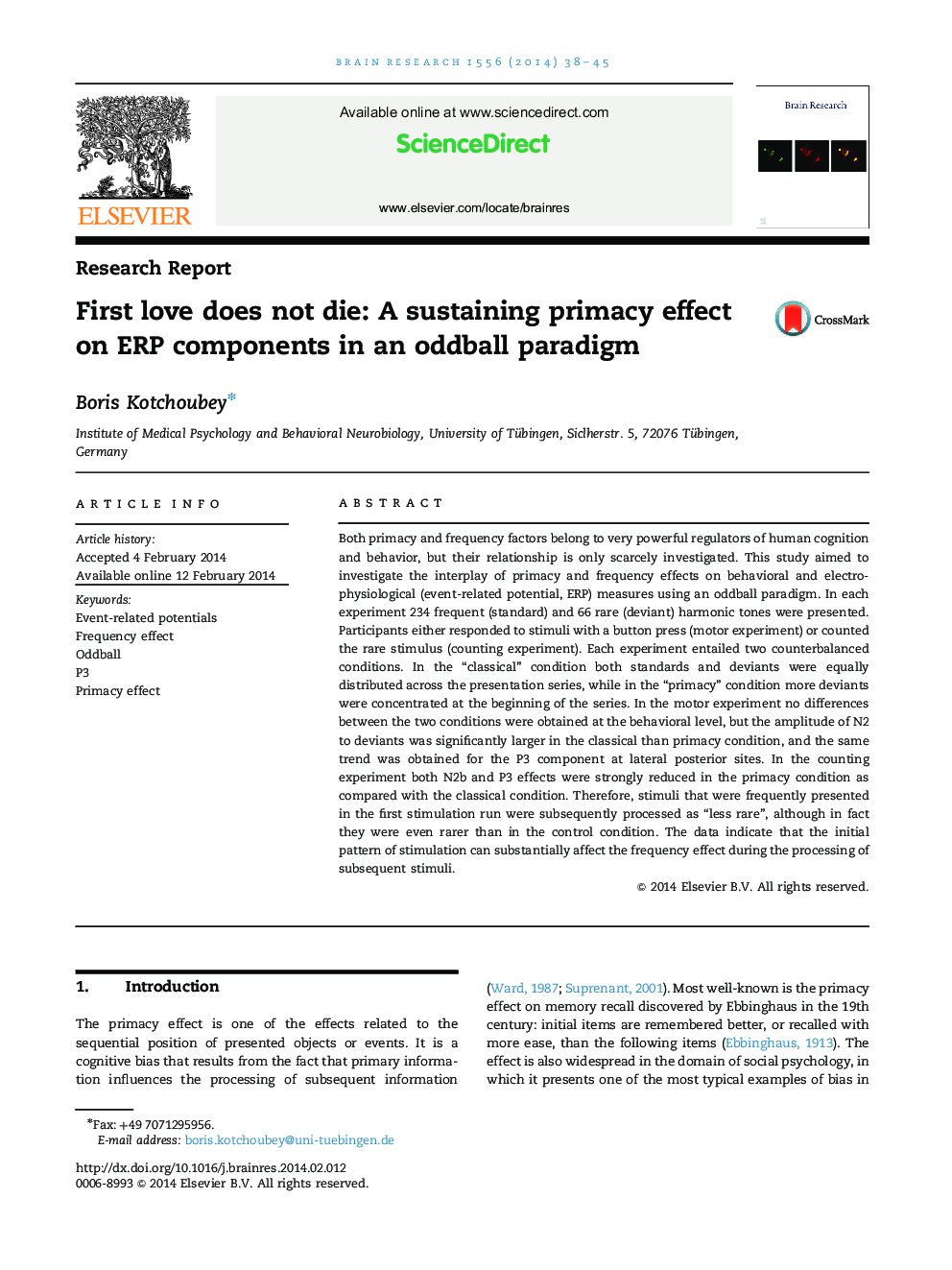| کد مقاله | کد نشریه | سال انتشار | مقاله انگلیسی | نسخه تمام متن |
|---|---|---|---|---|
| 4324350 | 1613883 | 2014 | 8 صفحه PDF | دانلود رایگان |

• Initial stimulus presentation affects brain processing of all subsequent stimuli.
• This primacy effect is expressed in N2 and P3 event-related potential (ERP) components.
• The ERP primacy effect is manifested despite the lack of a behavioral primacy effect.
Both primacy and frequency factors belong to very powerful regulators of human cognition and behavior, but their relationship is only scarcely investigated. This study aimed to investigate the interplay of primacy and frequency effects on behavioral and electrophysiological (event-related potential, ERP) measures using an oddball paradigm. In each experiment 234 frequent (standard) and 66 rare (deviant) harmonic tones were presented. Participants either responded to stimuli with a button press (motor experiment) or counted the rare stimulus (counting experiment). Each experiment entailed two counterbalanced conditions. In the “classical” condition both standards and deviants were equally distributed across the presentation series, while in the “primacy” condition more deviants were concentrated at the beginning of the series. In the motor experiment no differences between the two conditions were obtained at the behavioral level, but the amplitude of N2 to deviants was significantly larger in the classical than primacy condition, and the same trend was obtained for the P3 component at lateral posterior sites. In the counting experiment both N2b and P3 effects were strongly reduced in the primacy condition as compared with the classical condition. Therefore, stimuli that were frequently presented in the first stimulation run were subsequently processed as “less rare”, although in fact they were even rarer than in the control condition. The data indicate that the initial pattern of stimulation can substantially affect the frequency effect during the processing of subsequent stimuli.
Journal: Brain Research - Volume 1556, 27 March 2014, Pages 38–45